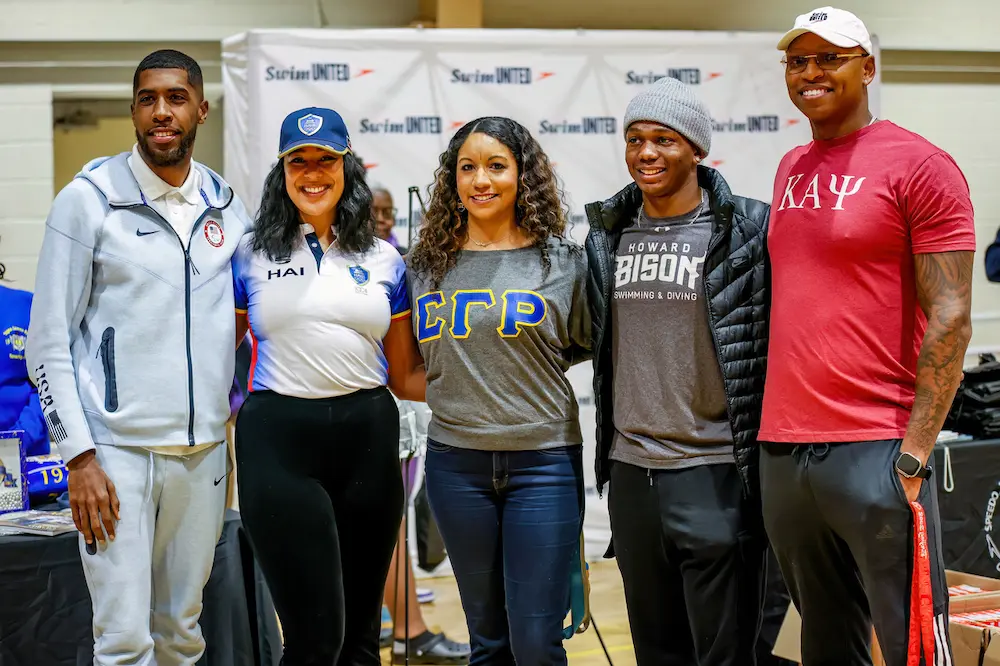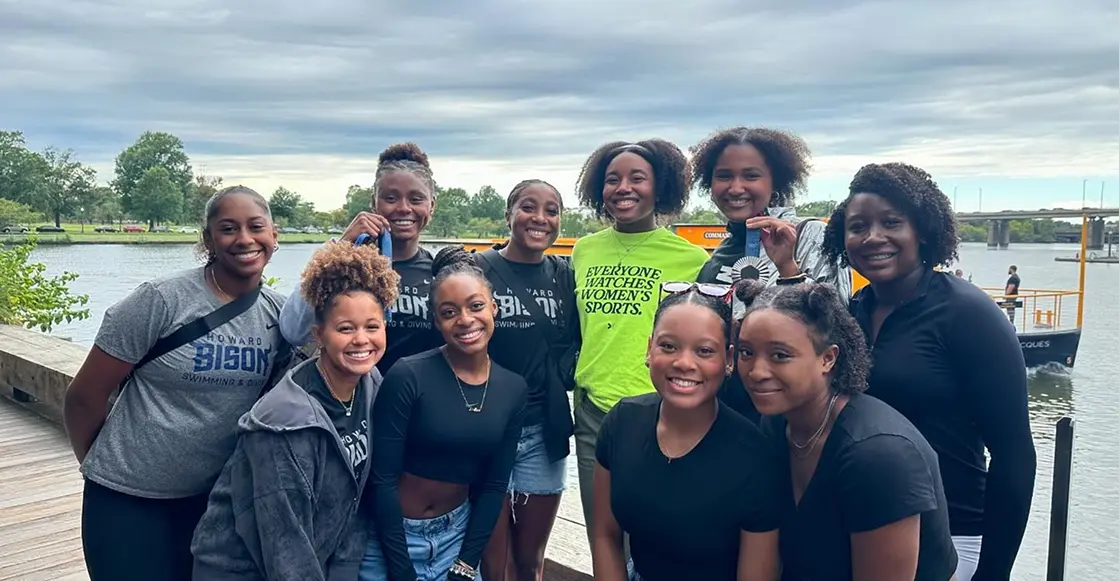Support for HBCUs
Historically, up to the early 1980s, with more than 20 HBCUs maintained swimming, diving, water-polo and rowing programs (Fogan 2014). These offerings not only fostered competitive excellence but also mandated swimming proficiency as a graduation requirement, leading many students to become certified lifeguards and water-safety advocates. Today, with Howard University the sole remaining swim-and-dive team since 2016, the absence of robust aquatic offerings has left a gap in addressing the disproportionate drowning rates in the African American community. Reestablishing and supporting HBCU aquatic programs can revitalize campus wellness by promoting physical fitness, enhancing water-safety skills, and nurturing talent for collegiate and national competition. Moreover, these initiatives galvanize community engagement, positioning HBCUs as pivotal hubs for aquatic education, advocacy, and cultural pride.

Our Commitment to HBCU Aquatic Programs
At HBCUs, support for aquatic programs encompasses comprehensive Learn to Swim courses for all proficiency levels, water safety education integrated into student orientation, and certification programs such as Lifeguard, CPR/AED, and Water Safety Instructor credentials. Partnerships with national aquatic organizations—including USA Swimming, U.S. Masters Swimming, the American Red Cross, and USA Triathlon—provide curriculum support, coaching clinics, and scholarship pathways tailored to HBCU environments.
The Results of Our Support
Supporting aquatic programs at HBCUs is driving exciting growth in student engagement, safety, and competition. At Norfolk State University, the Swim Club has seen steadily growing membership and enhanced water-confidence among participants. Morehouse College’s Swim Club, now in its third year, continues to welcome new learners and aspiring athletes, many of whom earn learn-to-swim and lifeguard certifications. Grambling State’s community clinics have expanded, fostering stronger campus-community ties and raising overall water-safety awareness.
Howard University’s Water Polo Club is on the rise too—its roster keeps growing as more students discover the sport, and the team is attracting interest from local high-school recruits.
“I never thought I’d find my passion in water polo,” says Tasha Williams, a Norfolk State junior. “These programs have given me confidence, leadership opportunities, and a community that cares about safety.”
By blending engaging swim lessons, safety education, competitive teams, and inclusive outreach, HBCUs are not only cultivating athletic talent but also embedding lifelong water-safety skills and community spirit across their campuses.

Support HBCU Aquatic Programs
Get involved today and help ensure HBCU aquatic programs thrive for generations to come! You can make a real difference by:
Every gift, hour, and partnership amplifies our mission. Visit diversityinaquatics.org/hbcu-support or email [email protected] to get started